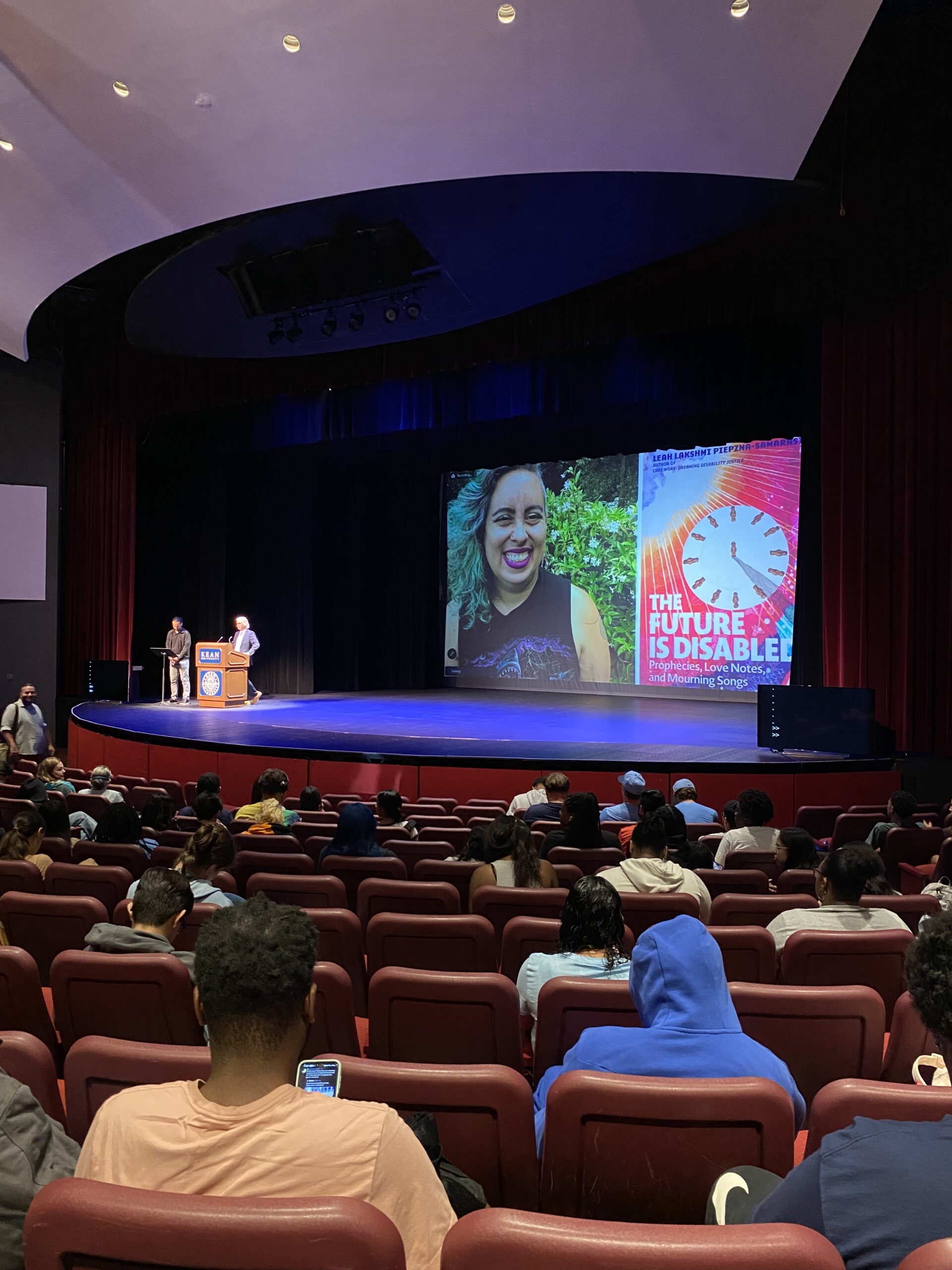By Nefertiti Nzameyo | Published November 8, 2023
Students went to Wilkins Theatre earlier this month to hear author Leah Lakshmi Piepzna-Samarasinha shed light on her latest book, “The Future Is Disabled.” The book was chosen as the freshman class’s Fall 2023 Common Read which accounted for a large freshmen attendance.

The Common Read is a selected book assigned to first-year Kean students in their Transition To Kean courses. The book is a conversation starter that kindles ideas about the events that impact modern-day society.
Piepzna-Samarasinha spoketo the audience through Zoom on Oct. 3 and opened up the presentation by describing her appearance to promote an inclusive environment for disabled persons. She acknowledged the beauty of being autistic, one of the many terms she proudly identifies as and embraces.
“I think in terms of studying how to love ourselves, it’s going against what we are taught and what we continue to be taught by this world, which is not to love ourselves,” Piepzna-Samarasinha said. “So if you’re going to make it, really go into it day by day.”
She stated what it means to represent a marginalized group like disabled BIPOC (Black, Indigenous, People of Color) people by accurately depicting their realities and the efforts to ensure she did so in a way that readers receive with high regard.
“I was staying up until 3 in the morning until it was just right. I really hustled,” Piepzna-Samarasinha said.
Aside from the insightful words of Piepzna-Samarasinha, the setting and structure of the presentation appealed to the disabled community. Four freshmen stood before the audience with questions and poems they produced in response to the book. The significance the students derived from Piepzna-Samarasinha’s work and the intrigue they communicated through their own creations was a uniquemethod that captivated the audience’s focus.
Sariyyah Hayes, a junior that attended the event said, “ The poems were really good. I like that they included that, it’s nice to have students there to relate.”
An ASL interpreter stood beside the podium, and a small screen on both ends of the stage translated the words spoken, silently rebelling against the longstanding history of ableism.

The inequality disabled people are subjected to throughout their lifetime by society led for Piepzna-Samarasinha to take action and voice their neglected truths.
Piepzna-Samarasinha said she was inspired by the works of Octavia Butler, Alice Wong, and Leroy Moore. She explained how their work ignited passion that translated through her work and way of living.
“Disability is pushed out of mainstream discourse,” she said. “Different stages of life are neglected differently.”
For disabled BIPOC specifically, the challenges dramatize the likelihood of being targets of racism. The constraints posed when demanding disability justice actualize in their struggle to find spaces where they are encouraged to discuss their experiences freely.
In Teen Vogue, she wrote: “Disability justice (DJ) spaces filled with disabled Black and brown people are crucial spaces for disabled, sick, Deaf, and neurodivergent BIPOC people to witness possible futures for ourselves, as we take in other Black and brown disabled people as possibility models and friends.”
The Future Is Disabled tackles the issues prevalent today and further extends the dialogue to consider how to transform peoples’ perceptions for the better.

You must be logged in to post a comment.